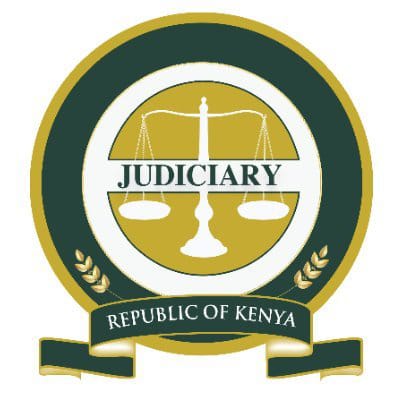- The Kenyan Judiciary, led by the Chief Justice is one of the three arms of government that is entrusted with the crucial responsibility of resolving disputes. This makes it a key player in the nation's legal landscape.
The Kenyan Judiciary, led by the Chief Justice is one of the three arms of government that is entrusted with the crucial responsibility of resolving disputes. This makes it a key player in the nation's legal landscape.
Despite facing numerous challenges, the Kenyan Judiciary has remained steadfast in its commitment to serving justice. Its independence has been tested on multiple occasions, particularly by the Executive arm of the government, through tactics such as intimidation and budget cuts. Yet, the Judiciary is unwavering in its mandate to deliver justice to the people of Kenya.
Many times, pressure is placed on the Judiciary, especially while dealing with political cases that challenge political processes. The Judiciary's first test was after the heavily contested 2013 election petition involving the then-Prime Minister Raila Odinga and Former President Uhuru Kenyatta.
The conduct of the Judiciary was tasted under the then-Chief Justice Willy Mutunga as this was the first election petition under the 2010 Constitution. On March 31, 2023, the Supreme Court of Kenya made a ruling that upheld Uhuru Kenyatta as the president elected. This led to criticism of the Judiciary by Raila Odinga and his supporters.
The second test on the Judiciary under the 2010 Constitution on matters of elections was in the 2017 election petition by the National Super Alliance (NASA) coalition. This time, the man at the helm of Kenya's Judiciary was Justice David Maraga, who was known for standing his ground. During this particular petition, the ruling took an unexpected turn by nullifying the election of Uhuru Kenyatta for his second term.
Read More
At this time, the Judiciary manifested its powers by ordering fresh elections for the President and Deputy positions. These were held despite criticism by those allied to Uhuru Kenyatta. Uhuru Kenyatta still emerged as the winner of the fresh elections.
After assuming power for the second term, there were constant quarrels between the Executive and the Judiciary of Kenya, with President Uhuru accusing the Judiciary of sabotaging government businesses.
In the 2018-2019 financial year the Judiciary was allocated ksh 14.6 Billion against the earlier estimate of Ksh 31.2 Billion. According to Justice David Maraga, this was crippling services to Kenyans.
The differences between the Executive and the Judiciary escalated in 2023 after the court gave conservatory order against the implementation of the controversial finance Bill. Later on July 12, 2023 after the court failed to lift the orders Ruto said “even those with decisions wherever they are cannot sabotage employment for millions of youths because of their own selfish political interest.”
In recent times, the Judiciary has been faced with the delicate issue of the impeachment of the Deputy President, which the Deputy President's lawyer argues is an illegal, hurried process.
In what has seemed as president Ruto’s sponsored Motion he has wrote to the Judiciary seeking the court to transfer the case to the Supreme Court arguing the High court has no power to determine the case.
According to Eric Theuri, former Law Society President (LSK) all eyes are on the Judiciary. “Rigathi Gachagua's legal battles have placed the Judiciary squarely in contest, that the confidence Kenyans people have in the Judiciary is now in question,” Theuri said.
The court has proceeded with the hearing of the Deputy President impeachment case after he was impeached by the National Assembly and the Senate. So far the court has given conservatory orders which stopped the swearing in of Hon. Kithure Kindiki as Deputy President.










